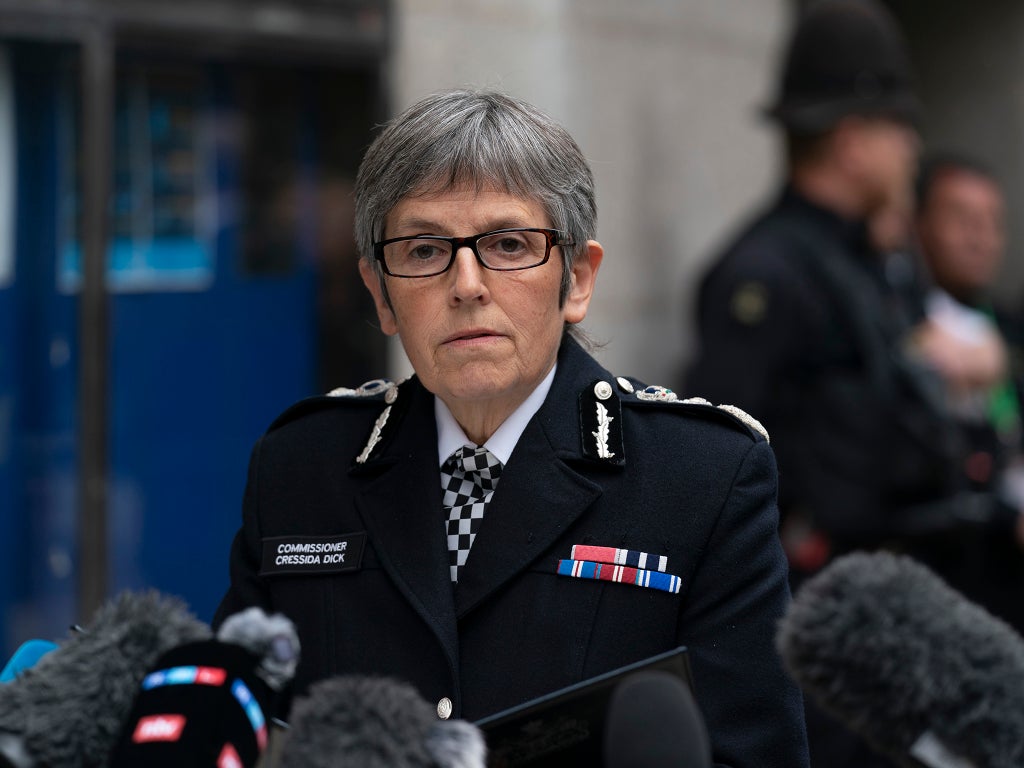
Police fear that their investigation into alleged breaches of Covid laws in Downing Street could be hindered if key evidence is released in the Sue Gray report, The Independent understands.
Scotland Yard confirmed on Friday that it had asked for “minimal reference to be made” to the events it is investigating.
“The Met did not ask for any limitations on other events in the report, or for the report to be delayed, but we have had ongoing contact with the Cabinet Office, including on the content of the report, to avoid any prejudice to our investigation,” a statement added.
A source told The Independent the position was not new, but had not previously been made public.
Officers leading the probe are concerned that they will not be able to investigate effectively if key details and pieces of evidence, such as photos, are released to the general public.
It would mean that suspects may know what is held against them before being interviewed.
The source said Scotland Yard is not seeking to influence parts of the Cabinet Office report covering events that are not under criminal investigation, and has only asked for “reasonable adjustments”.
They said the Metropolitan Police has no objection to it being published, as long as it does not disclose evidence that will hinder its probe.
The force has not yet disclosed which of the numerous alleged Whitehall and Downing Street parties it is investigating, but The Independent understands the Cabinet Office report will make the distinction clear.
Criminal barrister Andrew Keogh said it was normal for police to control what information is disclosed to suspects during investigations.
“In most cases you only have to disclose what’s necessary,” he told The Independent. “The more you put into the public domain, the more you give someone a heads up and the thinking time to provide an explanation.”
Mr Keogh said there was no “legal impediment” to the Gray report fully publishing evidence, but that it would be unusual for a civil servant to turn down requests from the police.
“If she accepts as a proposition that she may make the investigation harder, and make suspects’ lives easier, it would be a bizarre response from a public servant to refuse a request,” he added.
The barrister also cautioned that existing press reports and anonymous witness accounts are unlikely to reach the threshold needed for evidence in a criminal case, and that police may have to do substantial additional work to use the material.
Mr Keogh said the Metropolitan Police’s position was “absolutely normal but given how they ended up being dragged kicking and screaming into this case, they open up space for conspiracy theories”.
Several other legal experts questioned the difficulties that could be caused by the Cabinet Office publishing full detail of all incidents.
There was initial confusion at the meaning of the word “prejudice” in the Metropolitan Police’s statement, which can refer to influencing juries. Jury trial is not possible for the Covid offences under investigation.
Nick Aldworth, a former Metropolitan Police chief superintendent, said the report could prejudice the police investigation “by disclosing the evidence that they will gather and thereby giving the potential defendants an opportunity to conceal or alter evidence”.
Barrister Matthew Scott wrote on Twitter: “Police should never want witnesses to be told what other witnesses have said, or certainly not in detail.”
Anonymous author Secret Barrister commented: “Whatever the reason, it is an unedifying look for the Met to refuse to investigate despite clear evidence of criminality, then to subcontract the function to a civil servant, and then to frantically try to stem the flow of information when they change their minds.”
Dame Cressida Dick announced the investigation on Tuesday, after weeks of mounting pressure as the force insisted it would only investigate if it received evidence of potential criminal offences from the Cabinet Office.
The commissioner said the investigation was triggered “as a result firstly of information provided by the Cabinet Office inquiry team and secondly my officers’ own assessment”.
Scotland Yard said Ms Gray’s team had provided “outline findings” from its inquiry in previous days, and that it had formally requested all relevant evidence.
Its probe is currently focused on whether various events broke the health protection regulations that were in force at the time, and changed frequently through the pandemic.
Dame Cressida told the London Assembly that fixed penalty notices, which varied between £100 and £10,000 in the period covered depending on a person’s role in an illegal gathering, would not “necessarily be issued in every instance and to every person involved”.
Fines have been the main method of enforcing Covid laws throughout the pandemic, and were used as a “last resort” according to police guidance, but people can be prosecuted for offences and handed larger penalties if they refuse to pay.







